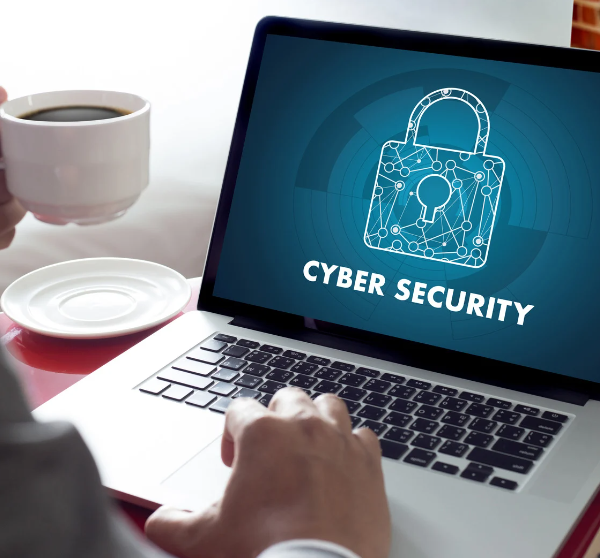
In the digital age, the risk of cyberattacks is ever-present, and ransomware is one of the most dangerous threats businesses and individuals face. Ransomware attacks are not only costly but can lead to devastating data loss, bringing operations to a halt. Whether you’re a large corporation, a small business, or an individual, understanding what ransomware is and how to protect yourself is essential to ensuring the safety of your data.
This blog will provide a deep dive into ransomware, how it works, and actionable steps you can take to safeguard your information from this growing threat.
What is Ransomware?
Ransomware is a type of malicious software designed to block access to a computer system or encrypt data, preventing users from accessing their files. Cybercriminals then demand a ransom, typically in cryptocurrency, to restore access to the victim’s data. These attacks can occur in various forms, ranging from simple screen locks to sophisticated encryption methods that make data recovery without paying the ransom nearly impossible.
Once ransomware infects a system, it spreads quickly, locking or encrypting essential files and disrupting daily operations. These attacks can affect everything from personal computers to complex business networks. If the ransom is not paid, the attackers may threaten to delete the data permanently or leak sensitive information to the public.
How Ransomware Works
Ransomware usually infiltrates systems through phishing emails, malicious websites, or infected software downloads. Cybercriminals trick users into clicking on infected links or opening malicious attachments, which activate the ransomware on the victim’s device. Once inside the system, ransomware scans for valuable data, encrypts it, and demands payment in exchange for a decryption key.
Because ransomware is designed to hide its presence until it’s too late, victims are often unaware that their data is at risk until they receive the ransom demand. The longer it takes to respond to a ransomware attack, the more damage it can cause, making it critical to act swiftly.
The Role of Cyber Security Services
To protect against ransomware, businesses and individuals must take proactive steps to secure their data. Cyber security services offer a range of protective measures that can prevent ransomware attacks from occurring in the first place. These services include threat monitoring, malware detection, and vulnerability assessments to identify weak points in your security infrastructure.
By partnering with a trusted cyber security provider, businesses can implement advanced firewalls, anti-malware software, and other protective tools to block ransomware attacks before they cause harm. Additionally, cyber security services provide 24/7 monitoring, ensuring that any suspicious activity is detected and neutralized in real time.
The Importance of Cyber Security Consulting
While cyber security tools are vital, businesses also need expert guidance to create and maintain a robust security strategy. Cyber security consulting plays an essential role in helping organizations understand their unique vulnerabilities and implement tailored solutions to address them.
Cyber security consultants conduct in-depth assessments of an organization’s network, identifying potential entry points for ransomware and other cyber threats. They also provide recommendations for improving security measures, such as employee training, regular software updates, and access control policies. With cyber security consulting, companies can stay one step ahead of cybercriminals and ensure that their data remains protected.
Implementing Cyber Security Solutions
In addition to consulting services, companies need comprehensive cyber security solutions to prevent ransomware attacks. These solutions include a combination of hardware, software, and policies designed to protect sensitive data from being compromised. For example, multi-factor authentication (MFA), encryption, and secure backup systems are all critical components of a robust cyber security plan.
A well-rounded approach to cybersecurity ensures that, even if ransomware infiltrates a system, the damage can be minimized. Secure backups allow businesses to restore their data without having to pay the ransom, while MFA helps prevent unauthorized access in the first place. With the right cyber security solutions in place, businesses can defend themselves against even the most sophisticated ransomware attacks.
Steps to Protect Your Data from Ransomware
Regular Backups
One of the most effective ways to protect your data from ransomware is to regularly back up your files. By maintaining secure, up-to-date backups, you can restore your data in the event of an attack without paying the ransom. Ensure that your backups are stored in an isolated system or cloud storage that is not connected to your main network, as ransomware can target connected backups.
Employee Training and Awareness
Many ransomware attacks begin with phishing emails or other social engineering tactics designed to trick employees into clicking on malicious links. Educating your staff about these risks is critical to preventing ransomware infections. Regular training on recognizing suspicious emails, attachments, and websites will reduce the likelihood of an employee inadvertently triggering an attack.
Use of Security Software
Investing in high-quality anti-virus and anti-malware software is essential for protecting your systems from ransomware. These tools can detect and remove malicious software before it has a chance to encrypt your data. Additionally, ensure that your security software is regularly updated to protect against the latest ransomware variants.
Enable Multi-Factor Authentication (MFA)
Multi-factor authentication adds an extra layer of security to your accounts by requiring users to verify their identity using more than just a password. This prevents cybercriminals from gaining access to your systems, even if they manage to steal login credentials. MFA should be enabled across all sensitive accounts and systems to reduce the risk of a ransomware attack.
Conclusion
Ransomware poses a significant threat to individuals and businesses alike, but with the right preventative measures, you can protect your data and avoid the devastating consequences of an attack. By utilizing cyber security services, seeking expert cyber security consulting, and implementing robust cyber security solutions, businesses can reduce their risk of falling victim to ransomware. The key to staying safe is a proactive approach—regular backups, employee training, and advanced security measures can go a long way in keeping your data secure from cyber threats.
Read More: –











